We work with insurances. Verify yours now
Residential Addiction Treatment Center for Men in Austin, TX
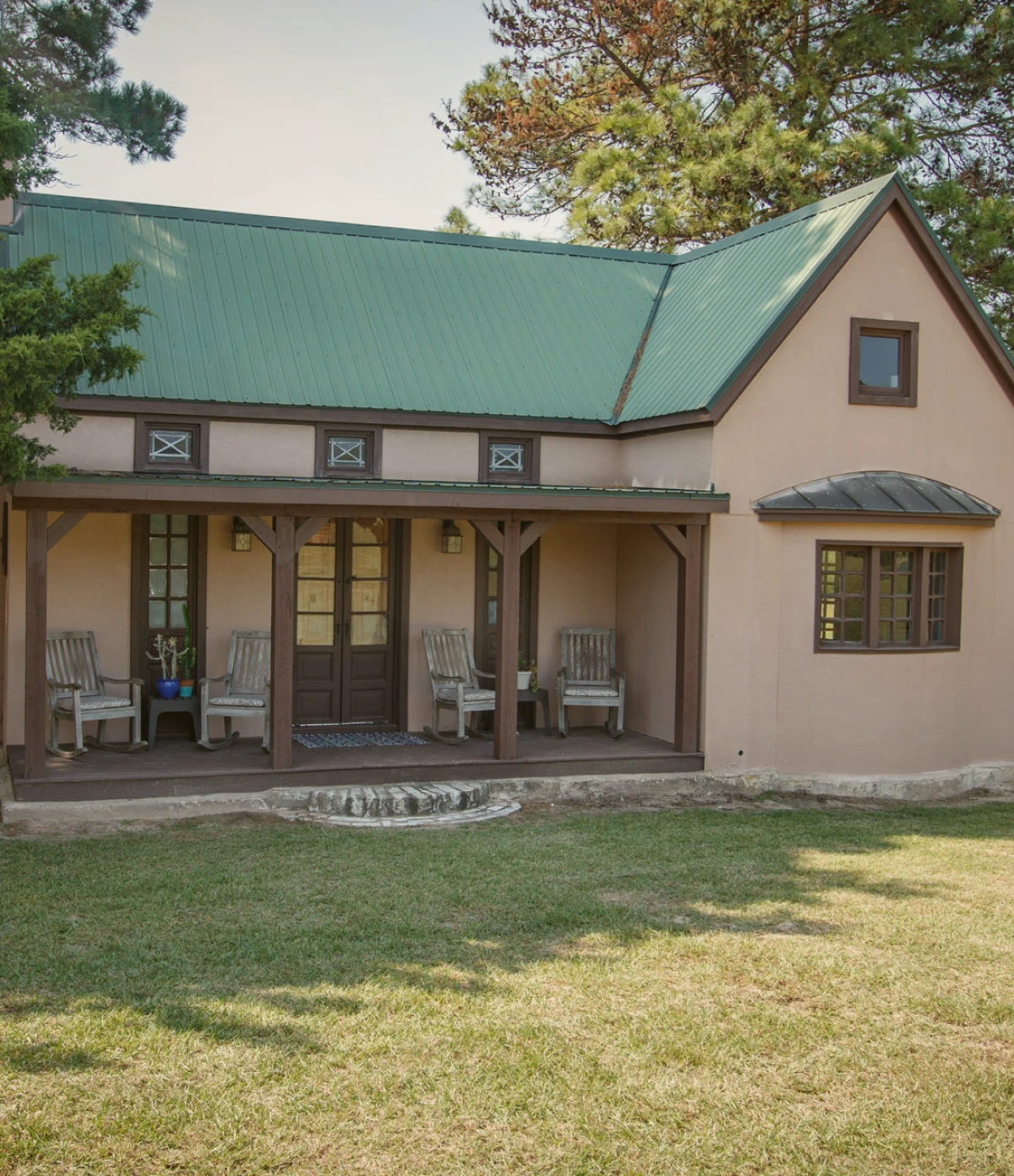
Inpatient rehab, also known as residential treatment, is an intensive form of addiction treatment where people reside full-time at a treatment facility.[1] This immersive approach provides a structured, supportive environment free from the triggers and temptations of everyday life, allowing patients to focus entirely on their recovery.
In an inpatient setting, patients receive round-the-clock care and supervision from a team of medical professionals, therapists, and addiction specialists.[2] The program typically includes a combination of individual counseling, group therapy sessions, medical care, and holistic treatments tailored to each person’s needs.
Inpatient rehab usually lasts anywhere from 28 days to several months, depending on the severity of the addiction and the individual’s progress. During this time, patients engage in a rigorous daily schedule of therapeutic activities, educational sessions, and skill-building exercises.
One key benefit of inpatient rehab is the peer support environment it helps create. Living alongside others facing similar challenges creates a sense of community and shared purpose, which can be incredibly beneficial for recovery.
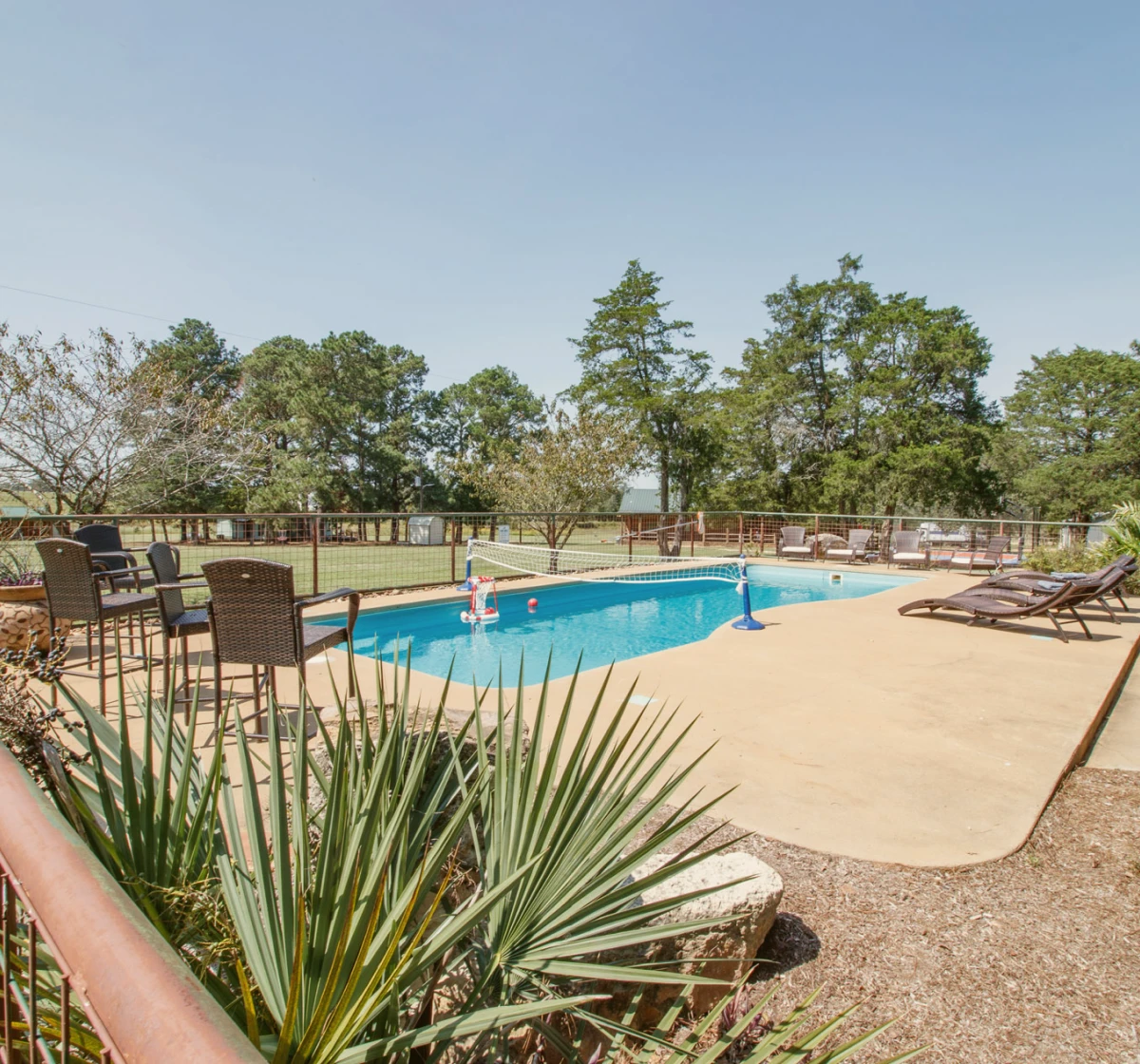

Inpatient rehab typically lasts 30-90 days, though at The Last Resort, we offer flexible programs based on individual needs and progress. This gives each man the time and support needed for meaningful, lasting recovery.
Austin offers unique advantages for men seeking recovery. As a city known for its vibrant recovery community, access to nature, and balance of urban resources with natural serenity, Austin provides an ideal backdrop for healing.
Benefits of choosing Austin for your recovery journey include:
At The Last Resort’s Austin location, we leverage these regional benefits while providing a secluded sanctuary just outside the city in Smithville, giving you the perfect balance of community connection and peaceful reflection.

Inpatient drug rehab in Austin, TX, is highly effective in treating addiction due to its comprehensive and immersive nature. Removing people from their usual environment eliminates immediate access to substances and exposure to triggers, creating a safe space for recovery.[3]
The 24/7 structured setting provides constant support, which is crucial in the early stages of recovery when withdrawal symptoms and cravings are most intense. This continuous care ensures medical supervision for safe detoxification and prompt intervention in case of complications.
Residential programs offer intensive therapy schedules, allowing for deep, focused work on underlying issues. Through daily individual and group sessions, patients gain insights, develop coping strategies, and build a strong foundation for long-term sobriety.
Inpatient substance use and mental health treatment programs offer intensive therapy schedules, allowing for deep, focused work on underlying issues. Through daily individual and group sessions, patients gain insights, develop coping strategies, and build a strong foundation for long-term sobriety.
The immersive nature of inpatient programs allows for the development and practice of new habits and skills in a controlled environment.[4]
This intensive period of learning and growth equips individuals with the tools needed to maintain sobriety upon returning to their regular lives.

What makes The Last Resort’s inpatient program unique in Austin is our combination of evidence-based practices, compassionate male-focused care, and our distinctive ranch setting that promotes healing through connection with nature and equine therapy.
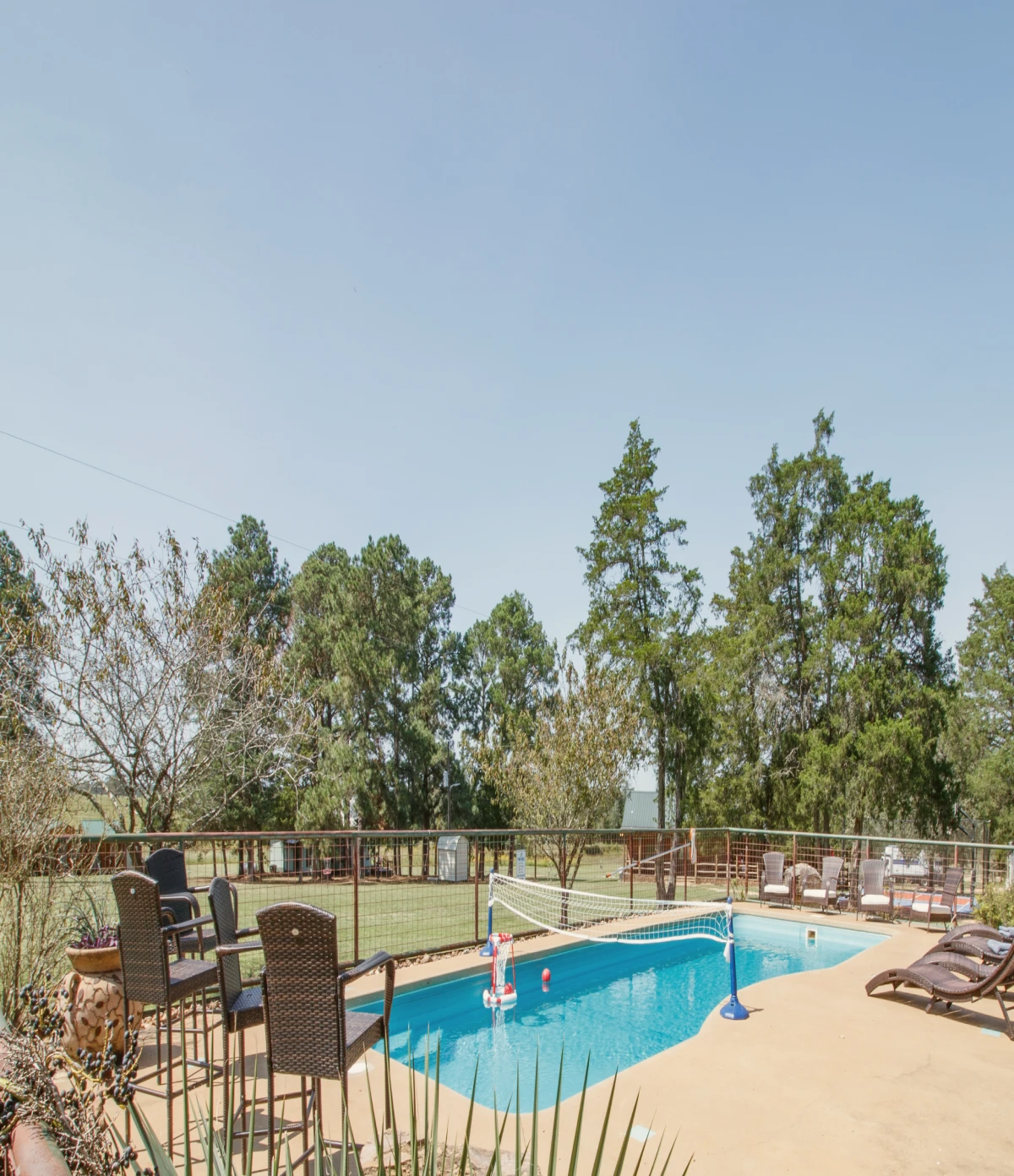
Research consistently demonstrates the value and effectiveness of residential treatment for substance use disorders and dual diagnosis issues. Several studies back up the positive impact of inpatient care across multiple domains of substance use and overall life quality.[5]
Residential treatment has been shown to significantly improve outcomes in several key areas:[6]
Patients often achieve longer periods of abstinence and show decreased substance use following residential treatment.
Many individuals experience improvements in co-occurring mental health conditions, such as depression and anxiety. Our dual diagnosis approach addresses both addiction and mental health simultaneously.
Residential care helps patients develop better interpersonal skills and rebuild relationships damaged by addiction. Our community-based approach and family program create the foundation for healed relationships.
Patients often show improved job performance and increased employment rates after completing residential programs. We prepare men for successful reintegration into work and community life.
Many experience improvements in overall physical well-being due to the structured, health-focused environment of residential care. Our nutrition, fitness, and wellness components support whole-person healing.
Patients frequently report a higher overall quality of life following residential treatment. Our alumni consistently report greater life satisfaction, purpose, and wellbeing after completing our program.
These findings underscore the importance of residential treatment as a valuable option in the continuum of care for substance use disorders. The evidence suggests that, for many, the immersive and comprehensive nature of residential treatment provides a strong foundation for long-term recovery.
Click on the links below to learn about the inpatient care staff at The Last Resort
Here’s What Our Alumni Are Saying
The Last Resort provides several evidence-based and holistic care modalities for inpatient substance abuse treatment at our ranch-style campus, ensuring you receive wraparound support during this vital phase of the recovery process:
Unlike many programs that simply offer 12-step meetings, our approach involves complete immersion in the principles and practices of 12-step recovery. Led by experienced specialists who understand the nuances of these programs, men develop a deep understanding of how to apply these principles to transform their lives.
A mindfulness-based approach that encourages individuals to accept their thoughts and feelings while committing to behavior changes aligned with personal values. It helps develop psychological flexibility and meaningful life engagement.
Comprehensive information on substance use disorders, their effects on the brain and body, and various recovery strategies. This knowledge empowers individuals to make informed decisions about their health and recovery journey.
A widely-used therapy addressing negative thinking patterns and behaviors associated with addiction. It helps individuals identify and change destructive thought processes, develop coping strategies, and modify harmful behaviors.
A comprehensive therapy focusing on emotion regulation, distress tolerance, interpersonal effectiveness, and mindfulness skills. It’s particularly effective for individuals with intense emotions or co-occurring disorders.
Our signature equine program is one of the most comprehensive in Texas. Working with horses provides profound insights into relationship patterns, emotional regulation, and authentic communication. Our equine therapy team and dedicated facilities make this a cornerstone of our Austin program.
A range of active, hands-on approaches to emotional processing and behavior change. Activities may include art, music, role-playing, or outdoor adventures, allowing individuals to address issues through direct experience and reflection.
A collaborative approach involving family members to enhance communication, resolve conflicts, and build a supportive environment for recovery. It addresses family dynamics that may contribute to or be affected by addiction.
Structured physical exercise programs designed to promote overall health, reduce stress, and support recovery. Regular exercise can improve mood and sleep quality and provide a healthy outlet for stress and emotions.
A supportive therapeutic setting where individuals share experiences, challenges, and successes with peers in recovery. It provides validation, diverse perspectives, and opportunities to practice interpersonal skills.
An intensive workshop focused on emotional healing and personal growth. It often involves guided exercises, reflection, and group support to address deep-seated emotional issues and promote self-discovery.
One-on-one sessions with a therapist for personal exploration, goal-setting, and addressing specific issues. It provides a safe space for deep, individualized work on recovery and personal growth.
Practical training in essential skills for daily life and maintaining sobriety. Topics may include financial management, job readiness, communication skills, and stress management, aiming to support independent, substance-free living.
A client-centered counseling style that helps individuals resolve ambivalence and enhance motivation for change. It explores and strengthens personal motivations for recovery, promoting lasting behavior change.
A therapeutic approach using guided dramatic role-playing and narrative storytelling to gain insight into one’s life, explore emotions, and practice new behaviors in a safe environment.
A goal-directed approach focusing on identifying strengths and solutions rather than problems. It aims for rapid change by helping individuals envision a preferred future and take concrete steps towards it.
The application of yoga practices and concepts to promote physical, mental, and emotional well-being. It combines physical postures, breathing exercises, and meditation to reduce stress, increase body awareness, and support overall recovery.
At The Last Resort, we recognize that each man’s journey to recovery is unique. There is no universal approach to treating substance use disorders, mental health issues, or co-occurring diagnoses. Our commitment is to provide individualized care that meets each client where he is on his path to wellness.
Upon arrival at our men’s facility, every client undergoes a comprehensive assessment. This evaluation serves as the foundation for determining the most appropriate level of care. Our experienced Clinical Director and Treatment Team carefully analyze the results to create a tailored treatment plan.
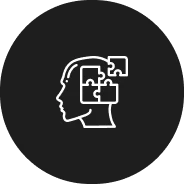
A multidimensional biopsychosocial assessment aligned with ASAM Criteria[8]
The client's personal goals and perceived needs
Input from our multidisciplinary treatment team
Ongoing evaluation of progress and
response to treatment
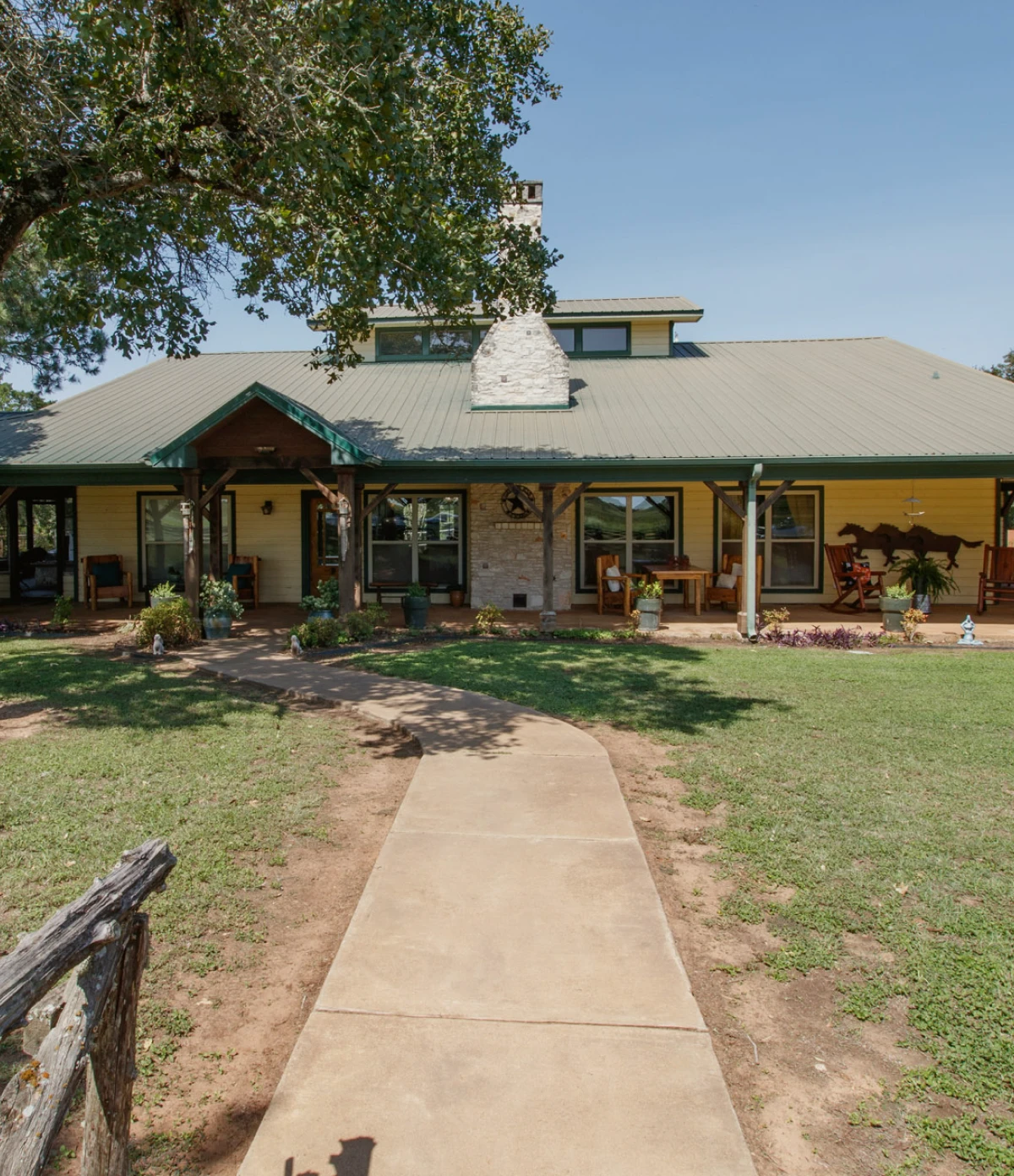
When a client achieves the goals outlined in his treatment plan or demonstrates significant stability in his recovery, we facilitate their transition to a less intensive level of care.
This fluid approach ensures that each man receives the right intensity of support at the right time.
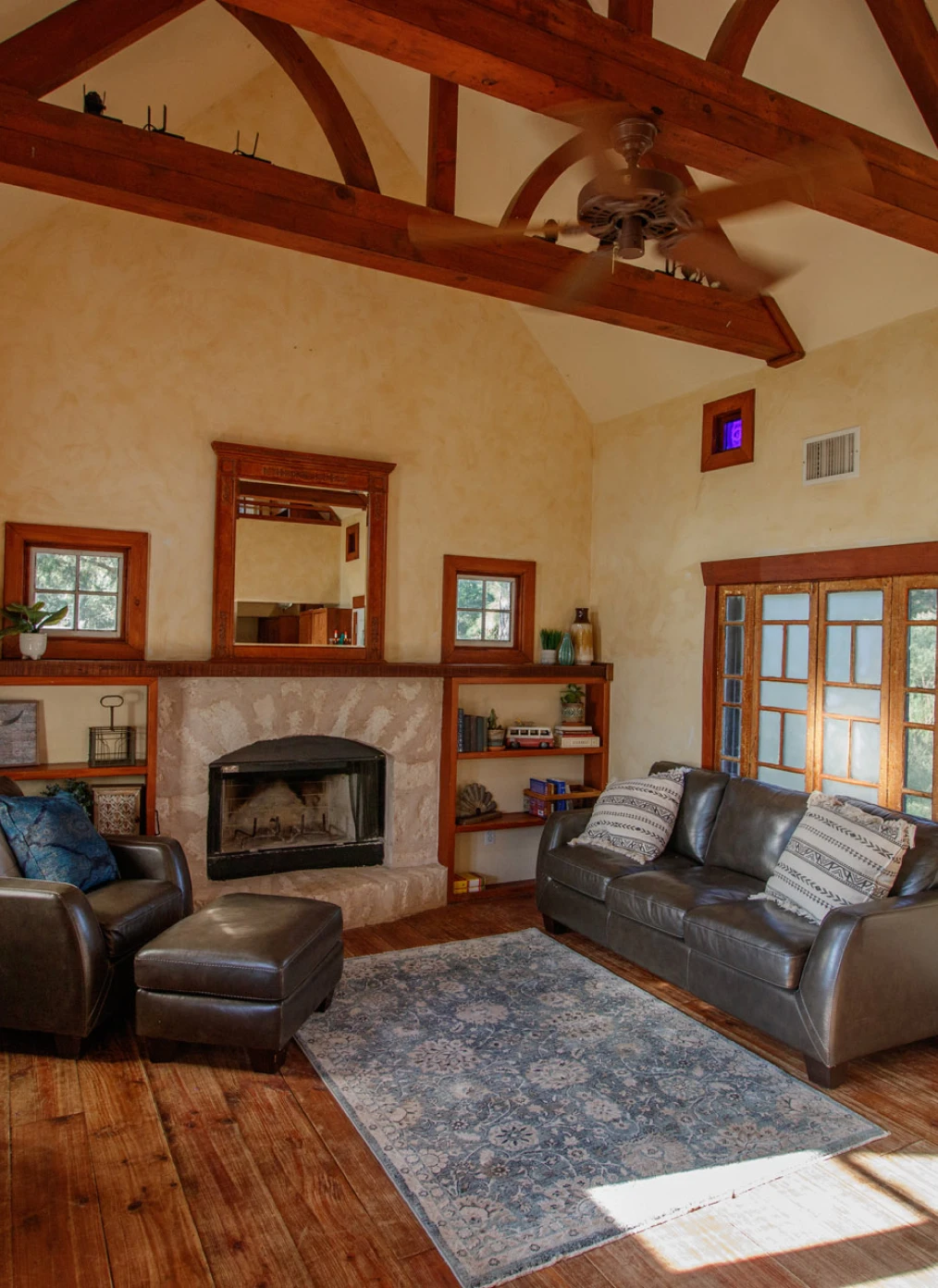
We’re here to be the solution you seek and empower you to pursue the healing you need. Reach out for help today and step forward in confidence.
Paying for treatment should never be a barrier to recovery and healing. There are several options available that do not put your family in financial jeopardy. The Last Resort is an in-network provider that works with most insurance companies.








Come experience a healing adventure like none other. Our expansive and secluded men’s-only ranch sits on 55 acres of central Texas beauty and is a tranquil sanctuary designed to promote rest, reflection, and recovery.
From rolling hills and ancient tree groves to warm ranch-style accommodations, you’ll feel right at home. You’ll enjoy a full range of amenities and experiences, including an outdoor pool oasis, a fitness studio, and a fully-stocked horse barn.
Our secondary location is a comfortable, modern facility with shared and private spaces that is home to all of our outpatient services. This center is conveniently located in south Austin off Menchaca Rd.
When drug or alcohol addiction takes root in your life, it colors everything you do, how you show up at work, at home, and for yourself. Your family often feels the worst of it. You know this is not what you had in mind for your life. There has to be a healthier way to manage your emotional distress and overcome the challenges you face.
As the opioid epidemic has continued to explode, so has the treatment industry. Unfortunately, not all are of the same quality or the same caliber.
Accredited status for our addiction treatment center confirms that the services we offer meet or exceed the official standards of practice established by the state and other governing organizations by passing a series of detailed assessments.
Understanding accreditation affords you and your loved ones the confidence to pursue long-term recovery with renewed peace of mind.
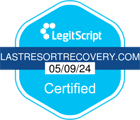



If you or a loved one is battling alcohol or drug addiction, you’re in the right place. Even if you’ve tried other treatment programs or think you’re at the end of the line, this is the community you need to thrive. We can’t wait to facilitate your recovery and be part of your success story.
Drug and alcohol inpatient treatment can vary in duration depending on individual needs and treatment plans. The length of stay is often determined by factors such as the severity of addiction, co-occurring mental health issues, progress made during treatment, and insurance coverage. Longer stays may be recommended for those requiring intensive stabilization, detoxification, or comprehensive therapeutic interventions.
During your stay at our inpatient treatment center in Austin, you can expect a structured environment focused on recovery and healing. This typically includes:
The main difference between inpatient (residential rehabilitation centers) and outpatient treatment for addiction lies in the intensity of care and the residential aspect:
The Last Resort offers several unique advantages:
Yes, we strongly encourage family involvement through our comprehensive Family Program. This includes educational sessions, family therapy, and our intensive Family Workshop. These components help family members understand addiction, improve communication, establish healthy boundaries, and support their loved one’s recovery while attending to their own well-being.
The Last Resort provides a complete continuum of care to support your ongoing recovery. After residential treatment, you may transition to our Partial Hospitalization Program (PHP), Intensive Outpatient Program (IOP), or outpatient services at our Austin clinical campus. We also offer the optional premiere sober living housing and connections to our active alumni community. Your discharge planning begins early in treatment to ensure a smooth transition and continued support.
[1] Ho, C., & Adcock, L. (2017). Summary of Evidence. In www.ncbi.nlm.nih.gov. Canadian Agency for Drugs and Technologies in Health. https://www.ncbi.nlm.nih.gov/books/NBK507689/ on July 3, 2024
[2] Center for Substance Abuse Treatment. (2020). Chapter 5—Specialized Substance Abuse Treatment Programs. Nih.gov; Substance Abuse and Mental Health Services Administration (US). https://www.ncbi.nlm.nih.gov/books/NBK64815/ on July 3, 2024
[3] Institute of Medicine (US) Committee for the Substance Abuse Coverage Study, Gerstein, D. R., & Harwood, H. J. (2018). The Effectiveness of Treatment. Nih.gov; National Academies Press (US). https://www.ncbi.nlm.nih.gov/books/NBK235506/ on July 3, 2024
[4] Laudet, A. B., Savage, R., & Mahmood, D. (2002). Pathways to Long-Term Recovery: A Preliminary Investigation. Journal of Psychoactive Drugs, 34(3), 305–311. https://www.ncbi.nlm.nih.gov/pmc/articles/PMC1852519/ on July 3, 2024
[5] de Andrade, D., Elphinston, R. A., Quinn, C., Allan, J., & Hides, L. (2019). The effectiveness of residential treatment services for individuals with substance use disorders: A systematic review. Drug and Alcohol Dependence, 201(1), 227–235. https://www.sciencedirect.com/science/article/abs/pii/S0376871619301875 on July 3, 2024
[6] Reif, S., George, P., Braude, L., Dougherty, R. H., Daniels, A. S., Ghose, S. S., & Delphin-Rittmon, M. E. (2014). Residential Treatment for Individuals With Substance Use Disorders: Assessing the Evidence. Psychiatric Services, 65(3), 301–312. https://ps.psychiatryonline.org/doi/10.1176/appi.ps.201300242 on July 3, 2024
[7] American Society of Addiction Medicine. (2022). About the ASAM Criteria. American Society of Addiction Medicine. https://www.asam.org/asam-criteria/about-the-asam-criteria on July 3, 2024
As part of our commitment to clients and families, we share high-quality resources, industry-related news, and practical education with those in our circle of influence. We hope these resources equip and inspire those who read them to take positive, healthy action.
The goal of all content is to empower and equip without compromise. Every resource The Last Resort creates is not supported by sponsorship or advertisers and is therefore free of bias and murky agendas.
All of our educational materials are produced or reviewed by the team at The Last Resort. We staff and consult with subject matter experts and industry professionals to ensure all that is shared is accurate and accessible.